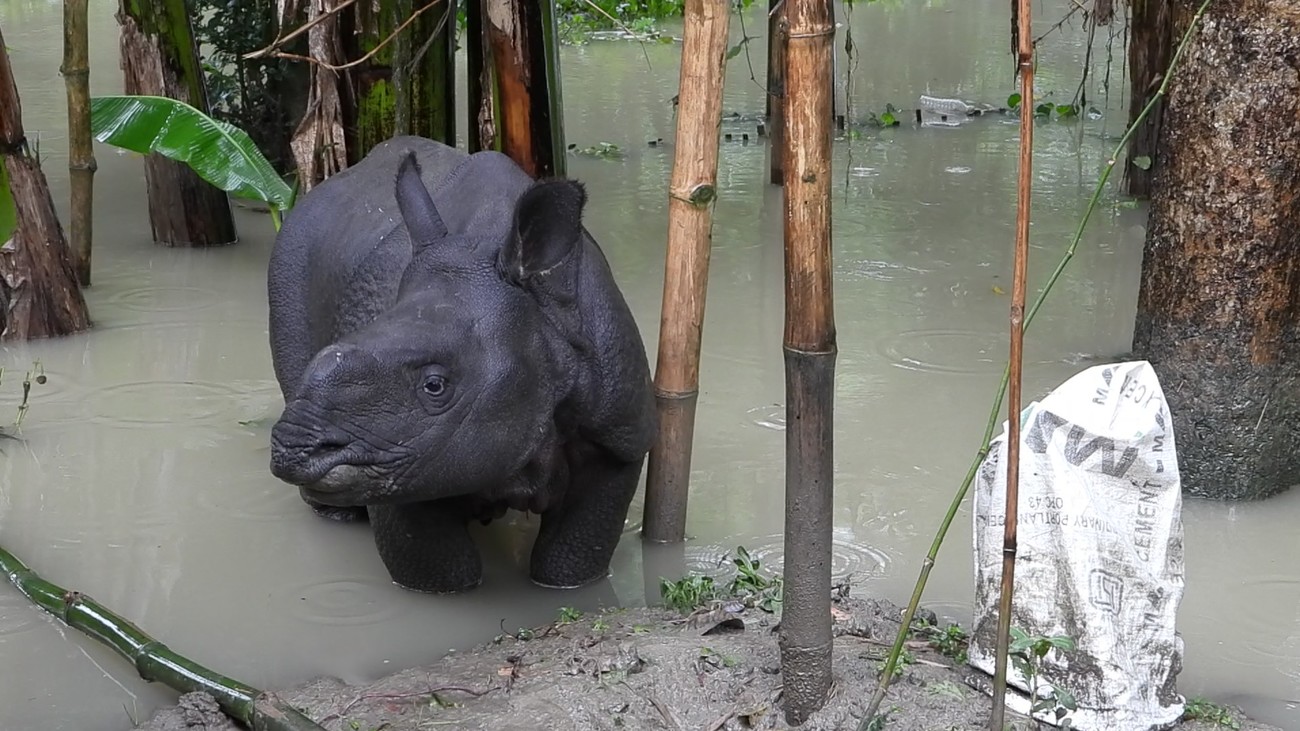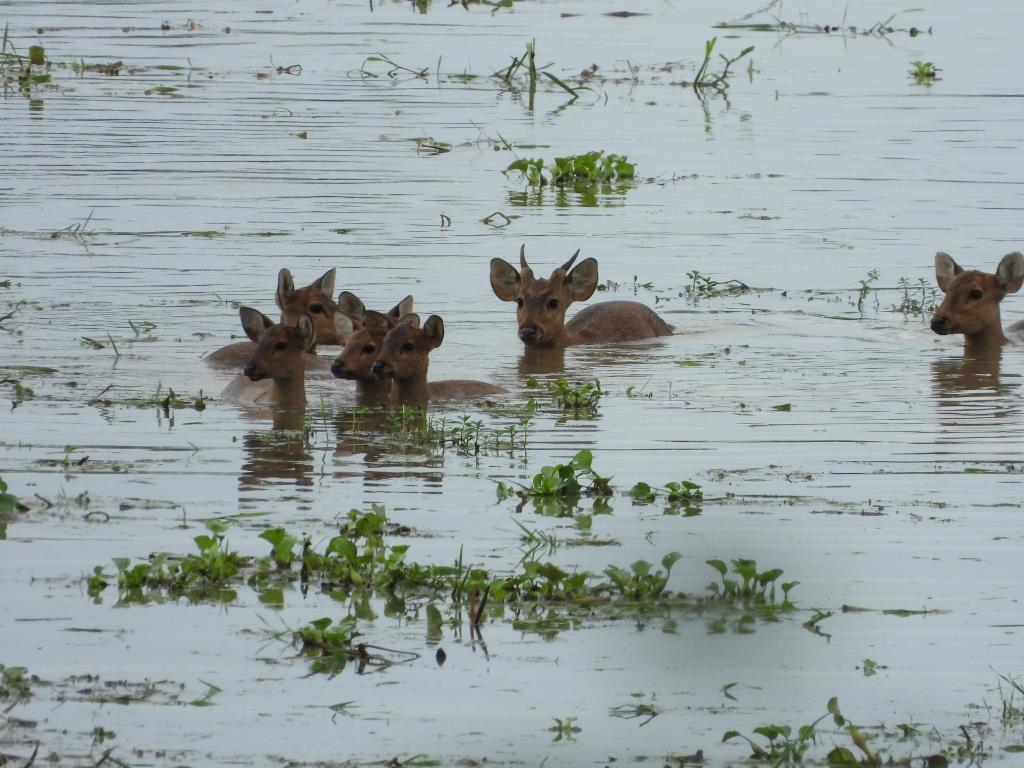rescuing animals from the floods in Kaziranga National Park, India
rescuing animals from the floods in Kaziranga National Park, India

Updated: July 28th, 2020
Our team recently rescued a greater one-horned rhino from the floodwater. Separated from her mother, the young calf was found struggling to swim against the rushing floods. Our team moved the calf to higher ground and transported her to the Centre for Wildlife Rehabilitation and Conservation (CWRC) for treatment. Only one year old, the little calf will develop her strength through a specialised rehabilitation process before returning to the wild. Until then, she is recovering well and will soon join the other rescued orphaned calves at CWRC.
Stay tuned for updates from the field as our team responds to more animals in need.

July 15th, 2020
Located in India, Kaziranga National Park is a UNESCO world heritage site recognised for its rich biodiversity and protected forests. The beautiful landscape is home to Bengal tigers, Asian elephants, water buffalo, civets and the largest population of greater one-horned rhinos. Like most of Northern India, Kaziranga National Park experiences dangerous floods during monsoon season from mid-June to September. Currently, the park is nearly 85% underwater. IFAW is working closely with our partner Wildlife Trust of India and the Assam Forest department to rescue displaced and injured wildlife from the floods.
Already this season, our team has orchestrated skilled rescue missions to save animals in need. In one operation, the forest team, led by IFAW-WTI’s Dr. Daoharu Baro, responded to a call about two tigers venturing close to a village in the Deopani area. To create a safe passage for the tigers to return to the forest, the team restricted vehicle movement along the highway. One of the tigers returned without any necessary interference, while the second tiger – a tigress – ventured further into the village and entered a home. The team were able to successfully administer anesthesia, capture the tiger and bring her to the Centre for Wildlife Rehabilitation and Conservation (CWRC) for recovery. The next morning, she was successfully released back into the forest.
Related content
Every problem has a solution, every solution needs support.
The problems we face are urgent, complicated and resistant to change. Real solutions demand creativity, hard work and involvement from people like you.